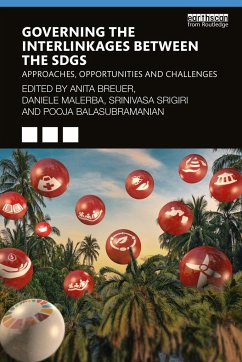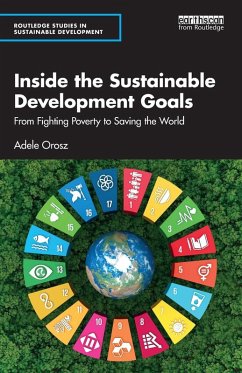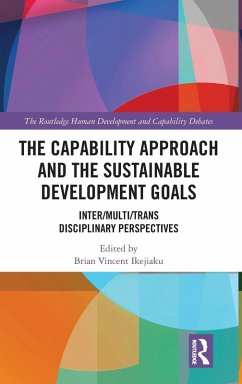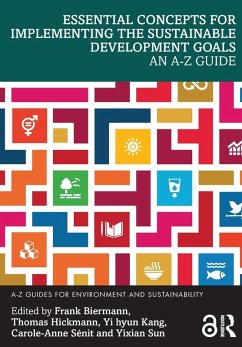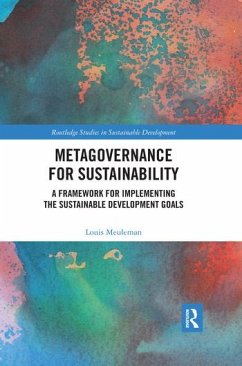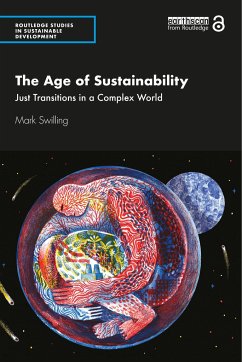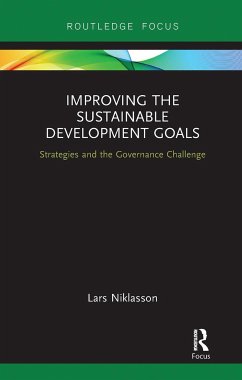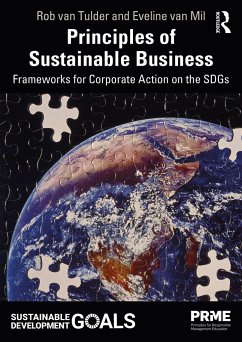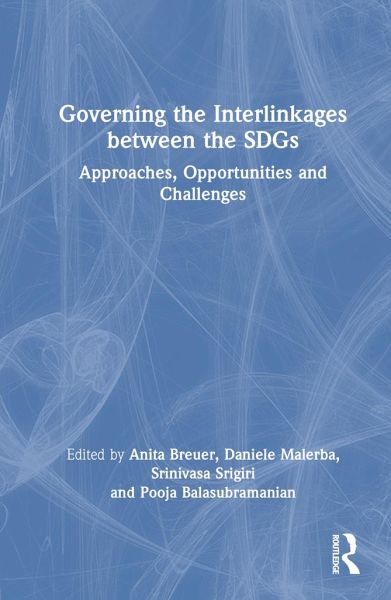
Governing the Interlinkages between the SDGs
Approaches, Opportunities and Challenges
Herausgeber: Breuer, Anita; Srigiri, Srinivasa; Malerba, Daniele
Versandkostenfrei!
Versandfertig in 1-2 Wochen
149,99 €
inkl. MwSt.

PAYBACK Punkte
75 °P sammeln!
Governing the Interlinkages between the SDGs: Approaches, Opportunities and Challenges identifies the institutional processes, governance mechanisms and policy mixes that are conducive to devising strategies of integrated Sustainable Development Goal (SDG) implementation.





